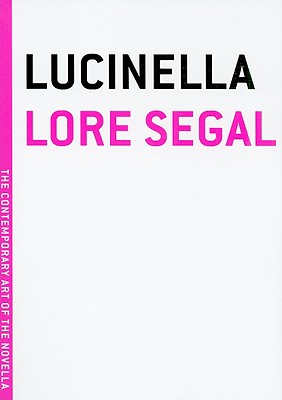
Lucinella
by Lore Segal
Melville House (reissued 2009), 154 p.
It begins as a comedy of manners among writers: the protagonist Lucinella spending time at Yaddo amidst a succession of shifting relationships and fluctuating power dynamics. You could be forgiven for having a sense of how the story will proceed. Lore Segal’s Lucinella was originally published in 1976 and, as it proceeds, one might find it closer kin to John Barth’s Chimera than a more straightforward tale of life and love in the creative world.
The novella’s initial realism quickly ebbs away, revealing a world in which gods and literary personages are interchangeable, panel discussions play out like avant-garde theater, and no less than three versions of the title character can be found at various social events. And while some of the concerns addressed over the course of Lucinella seem specific to its mid-1970s New York City setting, others are more universal: a critic’s propensity for literally erasing writers into irrelevance seems even more pressing now, in a world of instant reactions and anonymous snark. And some of the devices and imagery Segal uses seems to prefigure similar imagery in other works I’ve admired, from novelists as different as Chris Eaton and Jonathan Carroll. In its own way, then, reading Lucinella is like discovering the long-thought-apocryphal influence on your favorite bands.
If Lucinella frustrates, it may be that Lucinella frustrates. Even with the appearance of roaming Greek gods and invocations of racial and gender conflict, this is fundamentally a story about the personal and aesthetic travails of a writer, and a somewhat indecisive one at that. That’s entirely legitimate, but at times it can prompt a raised eyebrow at its protagonist’s tendency to overthink things. (Admittedly, that’s an occupational hazard with a writer as protagonist.) Even with its main character’s tendency to frustrate, though, certain images have tattooed themselves into my head. And one scene, in which Lucinella and her colleagues walk through a Manhattan both celebratory and awaiting the end of the world, is as beautifully unsettling as it must have been three decades ago.

1 comment